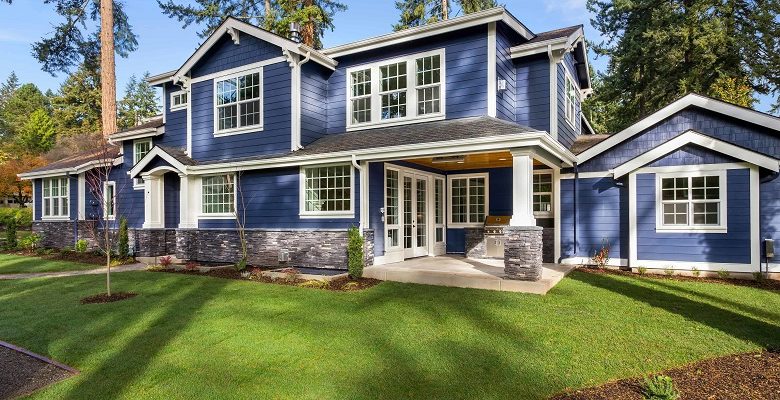Can My HOA Really Prevent Me From Constructing an ADU in California

As California’s housing crisis worsens, an increasing number of people are exploring methods to establish accessory dwelling units (ADUs) on their land. After all, an ADU may help elderly parents or adult children by providing much-needed extra income or housing. But what if your homeowners’ association (HOA) finds out about your plans? Can they really prevent you from constructing an ADU?
California Homeowners Associations
This question does not have a straightforward yes or no response. While HOAs have the authority to limit what sort of development may occur in their community, they are bound by state and municipal legislation. There are several statutes in California that safeguard homeowners’ rights to construct ADUs.
Assembly Bill 2215, for example, adopted in 2016, prevents HOAs from unnecessarily restricting homeowners’ right to develop ADUs on their land. Furthermore, in 2017, Senate Bill 13 (commonly known as the Accessory Dwelling Unit bill) was approved, making it easier for homeowners to get the permits required to build an ADU. Finally, Assembly Bill 2406, passed in 2018, permits HOAs to enable homeowners to construct ADUs of up to 1200 square feet on their land.
ADUs Are Gaining Popularity
ADUs are tiny dwellings that are placed on the same land as a larger residence. These apartments are becoming more popular in California, where rising housing costs and limited land supply have generated a desire for more inexpensive living choices. One of the most significant advantages of ADUs is that they may be utilized as long-term rentals, allowing property owners to offset the cost of their mortgages.
ADUs usually do not require new buildings or major modifications since they are often placed at the back of houses or on smaller lots that do not presently contain residences. As a result, in locations where real estate is scarce, they can be a realistic and cost-effective solution for homeowners. An ADU may be exactly what you need if you want to increase your rental revenue or make your property more competitive in today’s tough housing market. But initially, you must comprehend the construction procedure.
The Construction Procedure
Constructing an ADU can be a complicated and time-consuming undertaking. To begin, you must examine many crucial elements, including local restrictions, zoning requirements, and the services provided by your selected builder. When you engage with an experienced ADU builder like Acton ADU, you get to collaborate directly with their staff to ensure that your ADU is both functional and visually appealing. Their design professionals will work with you to produce a unique building plan that blends in with your current house.
They can assure you that your new ADU is constructed to last because of their experience and enthusiasm for superior craftsmanship. Acton ADU will help you achieve your idea for a beautiful and efficient ADU, whether you want something basic and minimalist or an exciting addition to your home’s living area. Visit to understand more about their method, go to www.actonadu.com.
In California, What Restrictions May an HOA Impose on Your ADU Construction?
A homeowner’s association (HOA) in California may impose a variety of limitations on the building of your ADU. They may, for example, establish minimum and maximum lot size standards or limit the materials used to build the ADU. Furthermore, HOAs may restrict the sorts of activities or behaviors authorized on the property, such as noise levels or the presence of pets.
There are, however, a variety of ways that homeowners might employ to circumvent these limits. For example, they can work with their HOA to get clearance for their intended ADU construction. Alternatively, they may choose to consult with an expert who specializes in HOA law in order to fight any limitations placed on their property. Finally, by being proactive and working with their HOA, homeowners may overcome any obstacles that may emerge while establishing an ADU in California.
How to Determine Whether Your HOA Will Permit You to Build an ADU on Your Property
The first step in discovering if you may install an ADU on your property is to contact your local housing authority. HOA restrictions differ greatly from one region to the next, so be sure your preferred site allows for an ADU before going ahead with any building plans. Visit your HOA’s website or speak with a representative to learn more about what your HOA permits. You should also consult a real estate agent who is knowledgeable about ADUs, as they can provide insight into local zoning restrictions and a list of builders that have expertise in building secondary structures such as ADUs.
Finally, carefully studying and planning for an ADU will assist in guaranteeing that you have the flexibility and resources needed to construct a place that matches your needs while also complementing the environment of your property. So, if you’re serious about determining if an ADU is a realistic choice for you, you should get started as soon as possible.
How to Collaborate With Your HOA to Get ADU Approval
When preparing to construct an ADU in Santa Clara County, CA, it is critical to collaborate closely with your HOA to ensure that all essential permissions are received. Here are a few pointers to assist you in going through this procedure quickly and effectively:
Communicate with your HOA in an open and honest manner. The more open and transparent you are about your intentions, the simpler it will be for people to comprehend what you are attempting to do. This will increase their likelihood of giving their support and approval.
Conduct an extensive study on all applicable planning and zoning requirements. Your HOA will almost certainly have certain criteria or limits that must be followed in order for your project to be authorized, so it’s critical that you understand these regulations before beginning the process. You should also seek the advice of a professional architect or builder who can provide expert advice on creating an ADU that fulfills all standards.
Make sure your expectations are realistic from the beginning. It is critical to avoid becoming unduly engaged in any specific design or idea before obtaining approval from your HOA, as this may prevent you from working closely and constructively with them during the application process. Approaching things with an open mind increases your chances of finding common ground and developing a great relationship with your association in the future.
Last Thoughts
While your HOA may be unhappy with your intentions to build an ADU, they are unlikely to be able to block you, provided you follow all of the required legal routes. There are several statutes in California that safeguard homeowners’ rights to construct ADUs. You should be free to carry forward with your plans as long as you keep within the limitations established by these rules.

